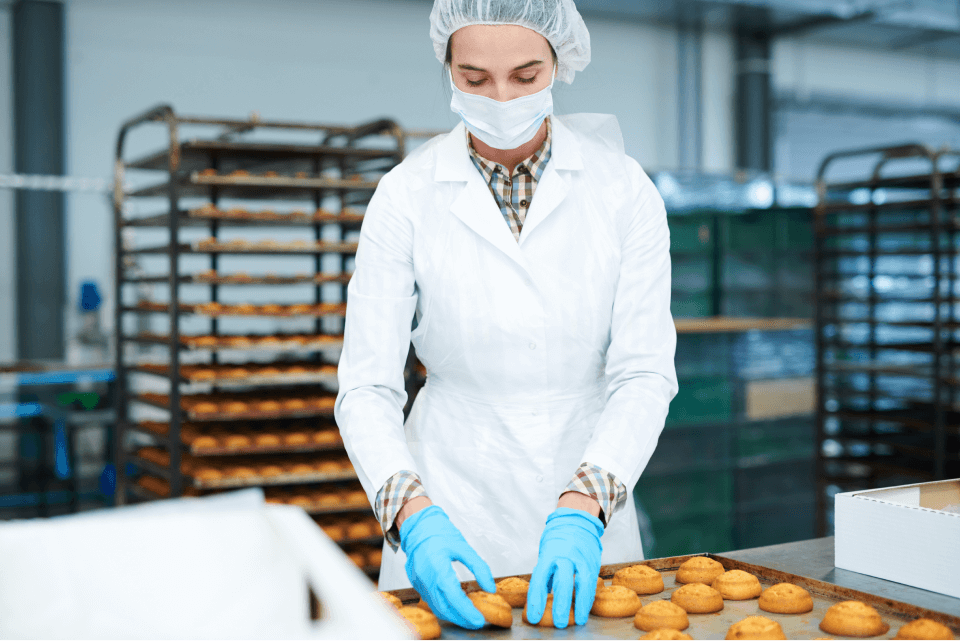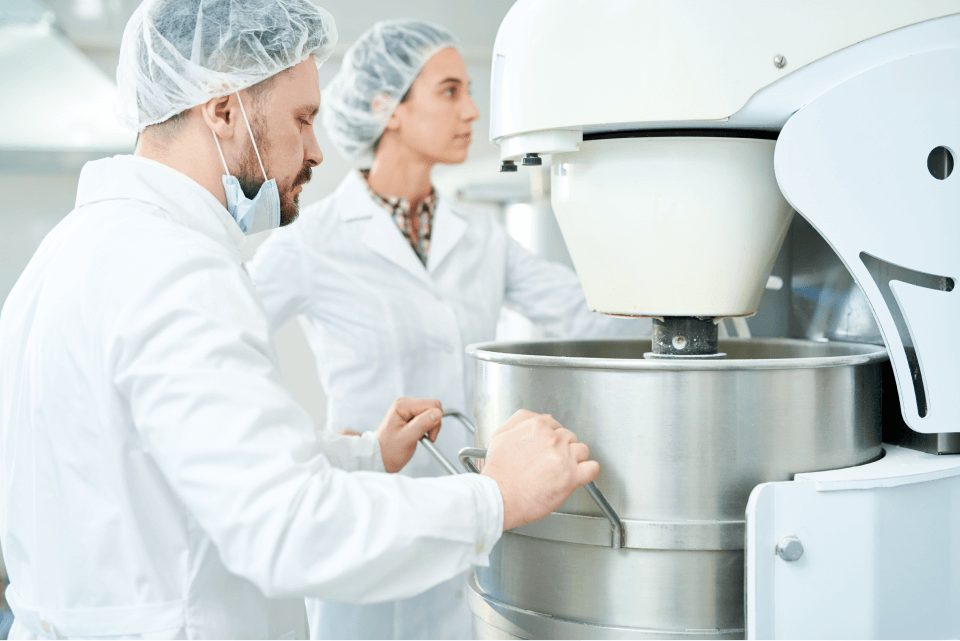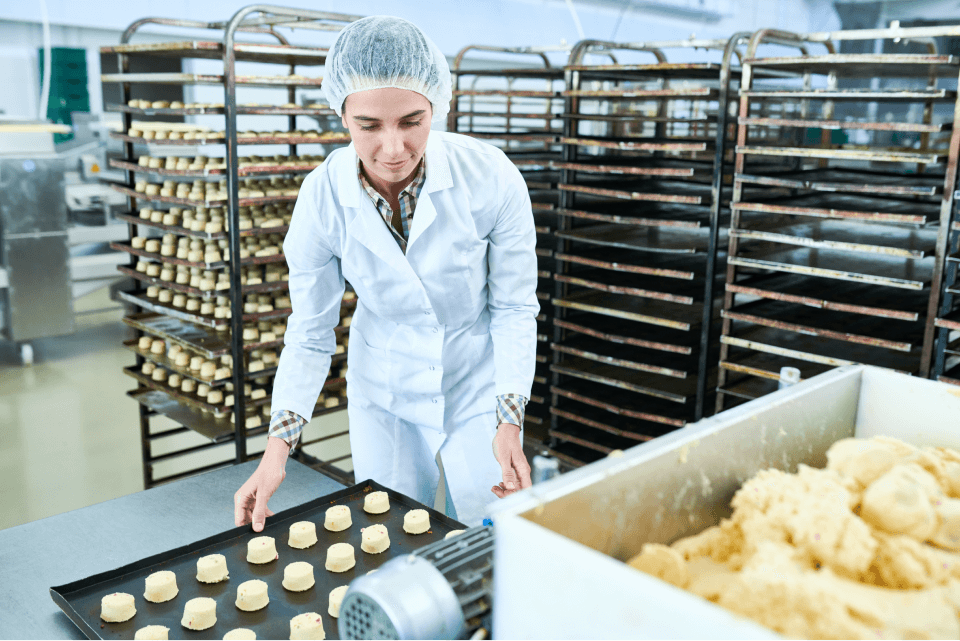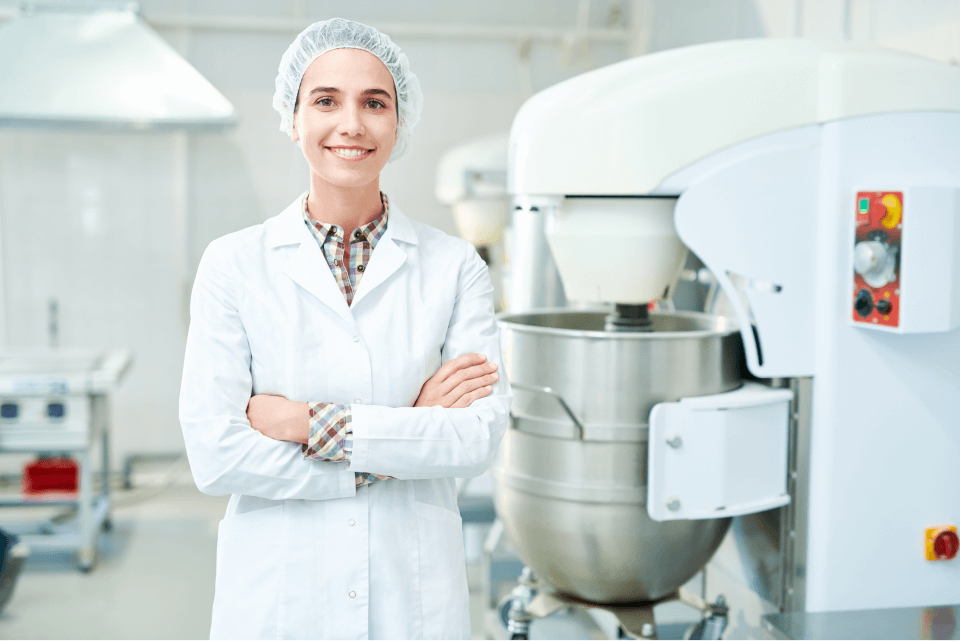With the accelerating pace of production, strategic quality control in the food and beverage industry has become a major challenge for senior leaders. Most manufacturers are now processing thousands of products every hour—from traditional loaves of bread to the most sought-after energy drinks—and each product requires meticulous attention to detail. In this high-pressure environment, where speed and precision are critical, a single oversight can lead to costly recalls, not to mention the risk to consumer safety.
Take, for example, a large-scale bakery producing an array of packaged goods daily. In the rush to meet demand, a slight deviation in temperature control or ingredient mixing can compromise an entire batch. If these compromised products make it to market, they risk triggering costly recalls, damaging the brand’s reputation, and potentially harming consumers. The ramifications extend beyond immediate financial losses, impacting long-term trust and loyalty among customers and ultimately deteriorating a company’s competitive advantage.
With increasing consumer demands for transparency, safety, and consistency, food and beverage manufacturers are under immense pressure to maintain the highest standards of quality.
But meeting these demands can feel like chasing a moving target. Traditional quality control methods, which are often static and manual, struggle to keep pace with the complexity and scale of modern production. This is where AI-generated standard operating procedures (SOPs) become an invaluable part of strategic quality control. By harnessing the power of AI, these dynamic, multimodal SOPs can adapt in real-time, monitoring and adjusting processes on the fly to ensure consistent quality. The result? A seamless operation that not only meets but exceeds the rigorous standards of the food industry, delivering safer, superior products to consumers every time.

Quality control in food manufacturing is an intricate process that requires meticulous oversight from raw material sourcing to final packaging. According to the Centers for Disease Control and Prevention (CDC), approximately 48 million Americans get sick each year from foodborne illnesses, leading to 128,000 hospitalizations and 3,000 deaths. These statistics highlight the critical need for rigorous quality control measures to prevent contamination and ensure consumer safety.
For food manufacturing leaders, quality control is not just about adhering to standards—it's about creating a competitive advantage. Companies that consistently deliver high-quality products build stronger customer loyalty, minimize costly recalls, and reduce the risk of legal liabilities. The economic impact of food recalls is significant, with one study estimating that the average cost of a recall to a food company is $10 million, not including lost sales and reputational damage.
When a food manufacturer issues a recall, the effects can cascade through the manufacturing, retail grocery, and restaurant sectors. A recent example is the dairy recall by California-based Rizo-Lopez Foods, underscoring the widespread impact and risk such events create across the supply chain. On January 11, 2024, Rizo-Lopez recalled 344 cases of aged cotija Mexican grating cheese after listeria was detected in a sample by Hawaiian officials. Less than a month later, on February 6, 2024, the recall expanded to more than 60 dairy products, including cheese, sour cream, and yogurt. These products, integral to taco kits, salads, dips, snacks, sandwiches, and even ready-to-eat burritos in vending machines, affected over 20 grocery chains, including Costco, Walmart, Trader Joe’s, and Whole Foods.

Traditionally, quality control processes have relied heavily on human oversight, detailed documentation, and manual inspections. However, these methods, while effective to an extent, are prone to human error, inconsistency, and can be highly time-consuming. Traditional SOPs require regular manual updates and extensive training for employees. They can be cumbersome to manage, especially in large-scale operations where processes are complex and subject to frequent changes. AI-generated SOPs represent a significant advancement in how food manufacturers tackle quality control. AI-generated SOPs offer a dynamic, intelligent, and adaptive approach.
These multimodal SOPs are created and continuously updated by AI systems that analyze vast amounts of data from various stages of the production process. This ensures that the procedures are always up-to-date, reflecting the latest industry standards, regulatory requirements, and best practices.
One of the leading platforms in this space is DeepHow, an AI-powered tool designed to revolutionize the creation and management of multimodal SOPs. DeepHow utilizes AI to convert complex workflows into easily understandable instructions that can be accessed by employees in real-time. This not only improves the accuracy of the SOPs but also ensures that they are tailored to the specific needs of each production line, taking into account the unique characteristics of different machines, materials, and processes.
Food manufacturing leaders must navigate a complex web of regulations and guidelines to maintain compliance and avoid penalties. In the United States, key regulatory frameworks include the Food Safety Modernization Act (FSMA), which emphasizes proactive prevention of food safety hazards, and the Hazard Analysis and Critical Control Points (HACCP) system, which requires manufacturers to identify and control potential hazards throughout the production process. Globally, the International Organization for Standardization's ISO 22000 outlines the requirements for a food safety management system, helping organizations across the food chain ensure that their products are safe for consumption.
AI-generated SOPs can play a crucial role in ensuring compliance with these regulations. By continuously analyzing production data and updating SOPs accordingly, AI systems help manufacturers stay aligned with regulatory requirements. This real-time adaptability is especially valuable in responding to new regulations or updates to existing laws.
For example, the FSMA requires that food manufacturing companies implement preventive controls to mitigate identified hazards. An AI-driven system like DeepHow can automatically adjust SOPs to incorporate new preventive measures as soon as they are identified, ensuring that the company remains compliant without the need for extensive manual updates.

For leaders in the food manufacturing sector, the adoption of AI-generated SOPs offers several strategic benefits:
The integration of AI-generated SOPs into quality control processes offers numerous benefits:

Consider a global food manufacturing company that produces a wide range of packaged goods across multiple continents. Historically, the company relied on manual SOPs, which were periodically updated by regional quality control teams. This approach led to inconsistencies in quality control practices across different regions and posed significant challenges during regulatory audits.
By implementing AI-generated SOPs with DeepHow, the company was able to standardize its quality control processes across all production sites.
The AI system analyzed data from sensors, production logs, and historical quality records to create tailored SOPs for each facility. These SOPs were continuously updated in real-time to reflect changes in local regulations and production conditions.
The result was a significant improvement in quality control consistency, a reduction in product recalls, and enhanced compliance with both local and international regulatory standards. The company also reported a reduction in the time required to prepare for audits, as the AI system was able to generate comprehensive compliance reports with minimal manual intervention.

As the food manufacturing industry continues to grow, so do the complexities of maintaining stringent quality control. For leaders at the helm of these operations, ensuring that every product meets the highest standards is not just a regulatory obligation—it’s a fundamental aspect of safeguarding brand reputation and consumer trust. AI-generated SOPs offer a powerful tool for leaders looking to enhance compliance, operational efficiency, and product quality. By embracing this technology, food manufacturing companies can not only meet today’s challenges but also position themselves for success in an increasingly complex and demanding marketplace.
Platforms like DeepHow are leading the charge, providing the tools necessary for companies to embrace this new era of quality control. As the industry continues to innovate, the adoption of AI-generated SOPs will likely become the standard, paving the way for a future where food manufacturing is safer, more efficient, and more reliable than ever before.


Start capturing, structuring, and activating your expert
knowledge today with a 14-day unlimited free trial.